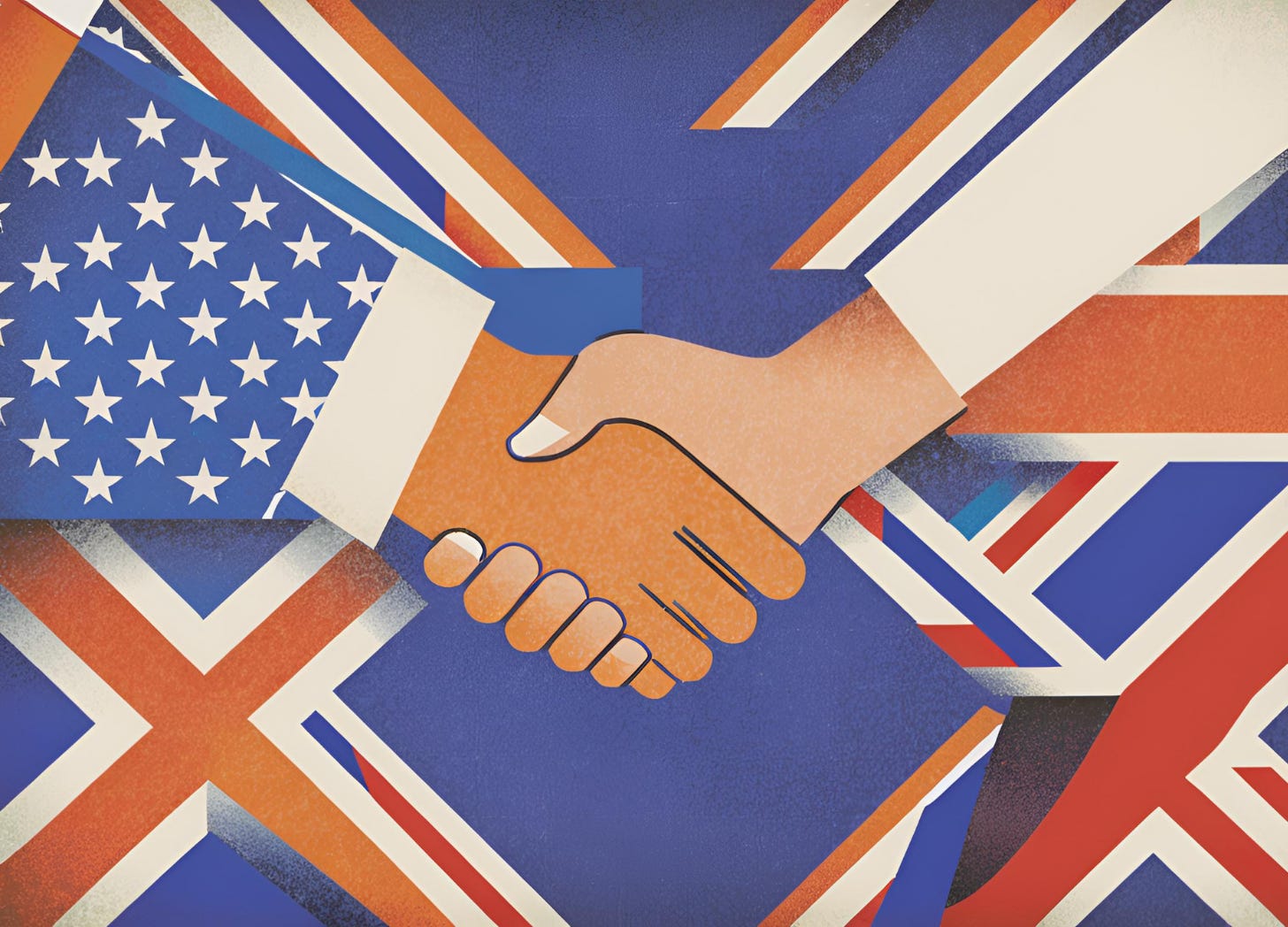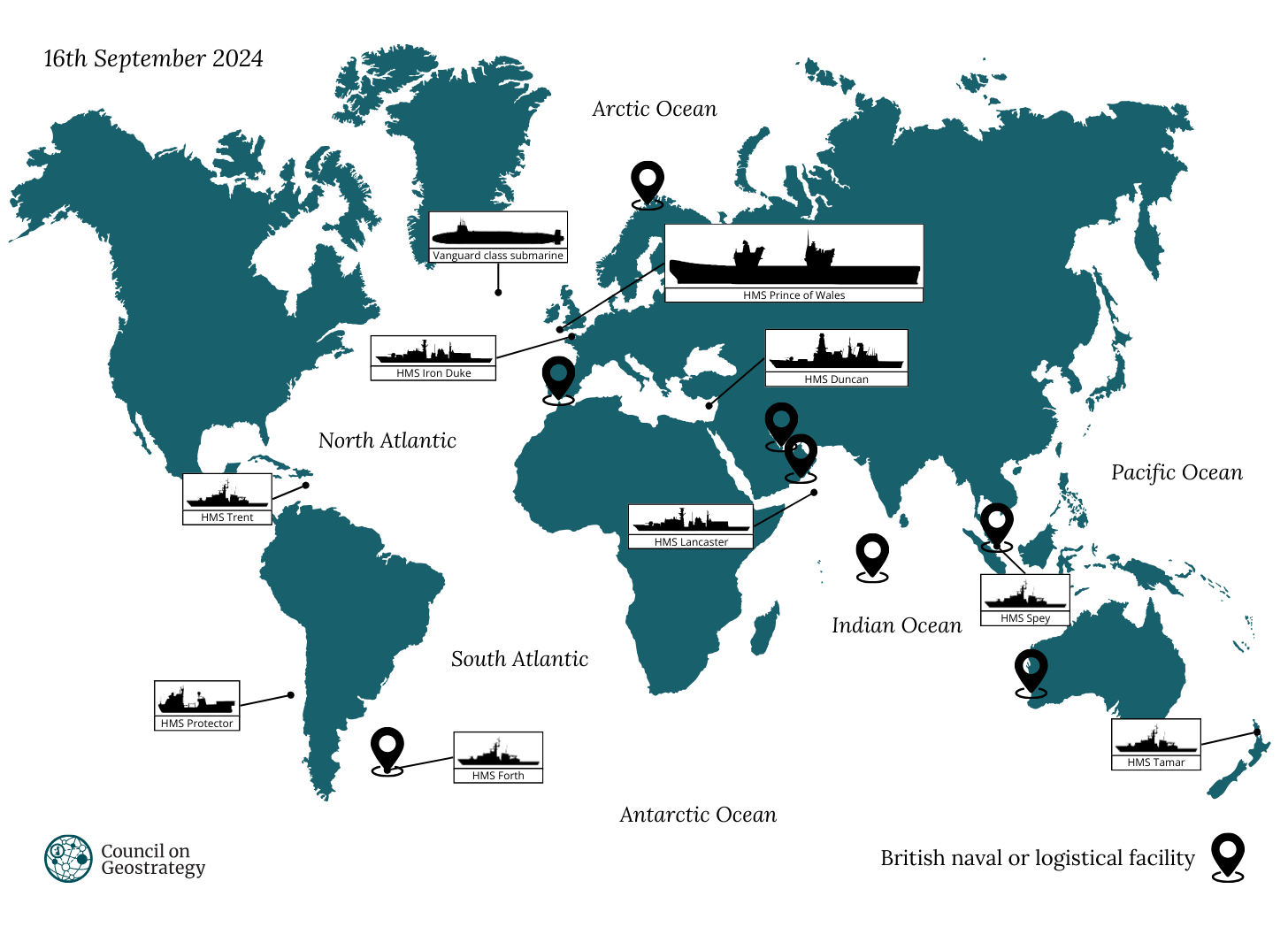Welcome to the tenth Cable, our weekly roundup of British foreign and defence policy. The Cable is published every Monday at 12:00.
British foreign policy has been abuzz with activity this week as summer ends with a flurry of British-American diplomacy. On 10th September, David Lammy, Foreign Secretary, welcomed Anthony Blinken, United States (US) Secretary of State, to the United Kingdom (UK) to begin discussions to develop a ‘deeper special relationship than ever before.’ These talks covered several key policy topics, including defence, sustainable economic growth, and the two nations' responses to several global issues, such as Ukraine, the Middle East, and rising tensions in the Indo-Pacific. Lammy and Blinken also reaffirmed their shared commitment to strengthen the resilience of democracies around the world and stressed the interconnectedness of the Euro-Atlantic and Indo-Pacific, both in terms of security and economics.
After their meeting in London, Lammy and Blinken flew to Kyiv for a joint visit to meet Volodymyr Zelenskyy, President of Ukraine, and other top Ukrainian government officials to highlight their respective governments’ ongoing support for Ukraine. During their visit, Lammy and Blinken announced an additional £1.1 billion (US$1.5 billion) in aid for Ukraine, with Britain to provide just over half the total amount. Following the announcement, Lammy released a statement in which he said:
Their [Ukraine’s] fight for freedom, liberty and democracy is also a fight for British security, European security, and global security. With the US, we stand firmly with Ukraine for as long as it takes.
To further support Ukraine, the Ministry of Defence (MOD) announced the extension of the UK’s military training programme for Ukrainian troops until the end of 2025. Operation INTERFLEX has trained more than 45,000 Ukranian personnel since July 2022. Meanwhile, His Majesty's (HM) Government placed sanctions on ten vessels in Russia’s ‘shadow fleet’, a group of ships which use illicit practices to avoid sanctions on Russian oil. The targeted ships now join 15 others who are now barred from entering British ports.
Finishing off this herculean week of diplomacy, Sir Keir, Prime Minister, and Lammy arrived in Washington to continue talks with Joe Biden, President of the US, on 13th September. The two leaders agreed to strengthen UK-US cooperation and developed a long-term strategy to counter the geopolitical challenges both nations face. Sir Keir and Biden agreed to support Ukraine for as long as it takes for Moscow to withdraw, although there was no announcement on whether Ukraine could begin using long-range missiles to hit Russian territory.
In other news, on 9th September, Lammy announced that the Foreign, Commonwealth and Development Office (FCDO) would launch three strategic reviews to strengthen Britain’s international position and enhance the effectiveness of the FCDO. These reviews – led by external experts – will focus on different elements of the HM Government’s foreign policy.
The first will investigate the UK’s global impact – looking at how to enhance relationships with international partners and improve the FCDO’s capabilities to assess and act on geopolitical challenges and opportunities. The second will examine how to maximise and modernise Britain’s diplomatic and development expertise to better fit the changing international environment. And the third will focus on how best to place economic growth at the centre of British foreign policy. In a press release from the FCDO, Lammy stated that: ‘These reviews will help us shape our strategy to increase the UK’s global impact, build growth internationally and ensure development and diplomacy work hand in hand.’The reviews are expected to conclude by the end of the year, though follow up work will likely continue into 2025.
How Britain is seen overseas
The RAND Corporation published a commentary piece calling for the UK to strengthen its economic security measures. The article states that in recent years Britain has had a scattergun approach to protecting its economic resilience and prosperity, but the new Labour government has the unique opportunity to adopt an economic security strategy. The piece suggests that such a strategy would shield elements of the economy critical to national security, improve cooperation with allies and partners in key sectors, and adopt more rigorous screening procedures for foreign investment.
How competitors frame Britain
Following Lammys promise to continue supporting Ukraine, Dimitry Medvedev, Deputy Chairman of the Security Council of Russia, issued a threat on X in which he said that Russian hypersonic missiles would sink the UK into the sea. Meanwhile, Vladimir Putin, President of Russia, gave a warning on state television that lifting restrictions on long-range missiles given to Ukraine count as ‘direct participation’ of the North Atlantic Treaty Organisation (NATO) in Russia’s war. Britain rattles the Kremlin; interesting to note that Putin appears to see Russian territory as distinct to the Ukrainian land his forces have seized.
The Global Times released propaganda stating that Britain and the US are fanning the flames of war in Ukraine, which is described as a British and American ‘pawn.’ The piece concludes with a warning to Washington and London not to ‘baselessly accuse China of supporting Russia’s military actions’ as ‘attempts to unjustly smear China and portray themselves as “defenders of peace” will ultimately be in vain.’ The only problem here is that the People’s Republic is aiding Russia’s war effort.
Tracking the Royal Navy’s global deployments
Though invisible, the Royal Navy’s ballistic missile nuclear submarine was deterring the gravest threats to British interests from the depths of the North Atlantic last week. Supercarrier HMS Prince of Wales was seen off the coast of St. Ives, having been exercising in the English Channel. HMS Iron Duke arrived in St. Helier in Jersey on 14th September after a brief trip to Germany, while HMS Duncan visited Limassol in Cyprus. On the other side of the world, HMS Protector participated in Exercise UNITAS 2024 near Chile, while HMS Lancaster conducted gunnery drills in the Indian Ocean.
Offshore patrol vessels HMS Forth, HMS Trent, HMS Spey and HMS Tamar continued to maintain a British presence across the globe. HMS Forth experienced a change of command in the Falkland Islands, HMS Trent intercepted over £160 million in drugs south of the Dominican Republic, HMS Spey remained at the British logistics facility in Singapore, and HMS Tamar was followed by dolphins having conducted training near New Zealand!
How Britain thinks about foreign affairs
Last week, HM Government announced it will commit £500 million to support Port Talbot’s – Britain’s largest steelworks – transition to a greener way of making steel. This will involve closing down the town’s blast furnaces and building electric arc furnaces instead. The transition will result in some 2,500 job losses, while a further 2,500 jobs may be lost at British Steel’s Scunthorpe plant, which is also closing its blast furnaces.
Implications
The media has depicted the closing down of Britain’s last blast furnaces as folly, which will lead the UK to become more dependent on foreign steel.
But, Britain may be onto something. The closure of the UK’s steel making facilities may not be the blow it has been reported to be. The UK will instead rely on recycled steel, which is significantly more energy efficient, requiring about 10 times less energy to produce than virgin steel. And, with UK steel currently suffering from high energy costs, this move may help make the industry more competitive internationally.
The transition to electric arc furnaces should also boost Britain’s resilience by reducing the country’s reliance on imported iron ore and coal, as the UK imports approximately 90% of the raw materials required to make virgin steel. Fortunately, Britain has an abundance of scrap metal, much of which is currently exported. This could be used in the new domestic steel sector instead.
Finally, while electric arc furnaces can produce about 90% of the grades of steel a blast furnace can, scientists are working on ways to improve the quality of recycled steel, which should allow Britain to continue producing the highest qualities of steel.
While many will criticise the lack of strategic thinking by successive governments which has resulted in the loss of Britain’s once powerful steel industry, HM Government has promised to publish a steel sector strategy early next year. So, far from increasing dependency on foreign suppliers, Britain may be about to enhance its own industrial resilience.
If you found this Cable useful, please subscribe or pledge your support!
What do you think about this Cable? Why not leave a comment below?







